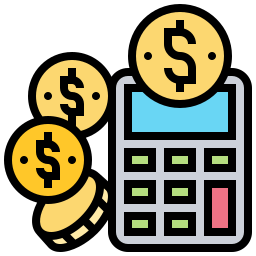Performance Marketing
Home / Performance Marketing

Performance Marketing Explained
Digital marketing is often used as a catch-all term, encompassing a wide array of strategies and channels that are continually evolving. Among these strategies, performance marketing stands out, yet it’s often overlooked. Performance marketing is a results-driven approach where advertisers pay only when specific actions are completed, such as a click-through to a landing page or a purchase.
In this article, we'll explore the intricacies of performance marketing: its mechanics, the benefits of incorporating it into your marketing strategy, and the most effective channels for maximizing your return on investment.
Here are the Key Benefits of Performance Marketing
Cost Efficiency
Advertisers pay only when specific actions are completed, such as clicks or sales, ensuring that marketing spend is directly tied to measurable outcomes.
Increased Accountability
With performance-based payment models, both advertisers and partners are held accountable for delivering results, aligning incentives with business objectives.
Flexibility and Scalability
Campaigns can be easily adjusted based on performance data, allowing for optimization and scaling of efforts that show positive results.
Data-Driven Decisions
Access to detailed performance data enables advertisers to make informed decisions, optimize strategies, and allocate resources more effectively.
Measurable Results
Performance marketing provides clear metrics and data on how well campaigns are performing, allowing for precise tracking and evaluation of ROI.
Enhanced Targeting
Performance marketing often utilizes advanced targeting techniques to reach specific audiences, improving the likelihood of achieving desired actions.
Improved Return on Investment (ROI)
By focusing on actions that lead to conversions or sales, performance marketing helps maximize the return on marketing investments.
Reduced Risk
Since payment is based on completed actions, advertisers minimize the risk of spending on ineffective advertising and only pay for actual results.
OUR EXPERTISE – INDUSTRIES

Lawyers

Legal

Doctor

Tooth

Realstate

Interior Design

Finance

Healthcare

Technology

Pest Control

Accounting

E-commerce

import export

Landscaping

Gardeners

Education

Tour and Travel
Here are some frequently asked questions (FAQs) about performance marketing:
Performance marketing is a digital marketing approach where advertisers pay only when specific actions, such as clicks, leads, or sales, are completed. This ensures that marketing spend is directly tied to measurable outcomes.
Unlike traditional advertising, which often involves paying for impressions or ad space regardless of results, performance marketing focuses on paying for actual performance metrics, such as clicks or conversions.
Key types include Pay-Per-Click (PPC), Affiliate Marketing, Cost Per Acquisition (CPA), Pay-Per-Lead (PPL), and Programmatic Advertising.
Benefits include cost efficiency, measurable results, increased accountability, enhanced targeting, flexibility, improved ROI, data-driven decision-making, and reduced risk.
Results can be tracked using various analytics tools and platforms that monitor key metrics like clicks, conversions, sales, and cost-per-action. These tools provide data to evaluate campaign performance.
PPC is a type of performance marketing where advertisers pay each time a user clicks on their ad. It is commonly used in search engine advertising and display networks.
Affiliate Marketing involves partnering with affiliates who promote your products or services. Affiliates earn a commission based on the results they generate, such as sales or leads.
CPA is a model where advertisers pay for specific actions that result in acquisitions, such as a sale or sign-up. Payment is based on the completed acquisition rather than ad impressions.
Selecting the right channels depends on your target audience, business goals, and the type of action you want to drive. Common channels include search engines, social media, affiliate networks, and programmatic advertising.
Yes, performance marketing can be scaled by increasing budgets for high-performing campaigns, expanding to new channels, and optimizing strategies based on performance data.

